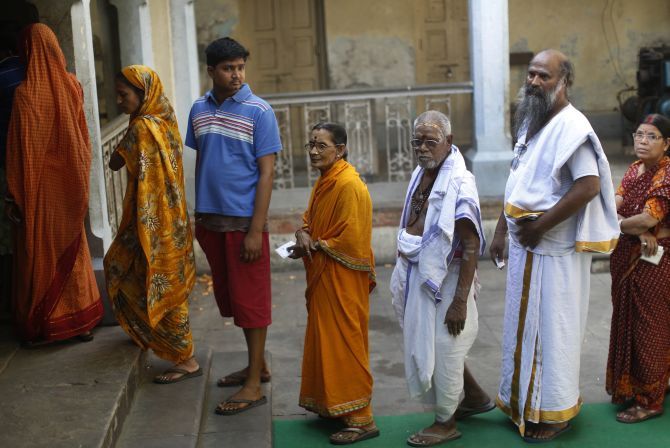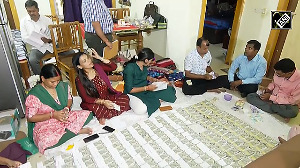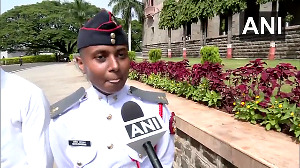 The new government has to make conscious efforts to rebuild social equality and bring the people together, says Devesh Kapur.
The new government has to make conscious efforts to rebuild social equality and bring the people together, says Devesh Kapur.
One of the most difficult challenges facing the new government is to weave a stronger fabric of ‘Indianness’, with a shared sense of destiny and social solidarity, while respecting the multiple threads that form the beliefs and cultures that constitute the multi-hued Indian fabric?
The elections themselves constituted one of the strongest glues that bind the country: that is, democracy. That electoral democracy has taken such deep roots in India is among Jawaharlal Nehru’s (and the Congress party’s) most cherished legacies. However, in recent decades, the Congress became more adept in deploying too clever by half ‘carve out’ policies for specific groups. Granting Other Backward Class status to Jats or minority status to Jains exemplifies the party’s cynical electoral calculus in sharp relief, but all to no avail.
Nowhere is this more evident than in the predicament of India’s Muslim community, which has been used by all political parties to further their own political ends. Instead of guaranteeing the community its rights as citizens by providing broad public goods, improving human capital and ensuring physical well-being, policies have ensured a further ‘us’ versus ‘them’ divide.
The Sachar Committee laid out in stark terms just how under-represented Muslims were in government services. Seven years after the report was released, the situation worsened, a shameful indictment of the United Progressive Alliance’s professed commitment to this cause. The Minority Concentrated Districts, based on the committee’s recommendations, continued to lag, due to both improper assessment of development challenges and the insufficient allocation of funds. Though an independent review of the Sachar Committee report and follow-up action concluded that only broad institutional reforms, and not Muslim-specific ones, could improve their status in society, the UPA government continued to pursue precisely the latter. Instead of undertaking policies that would ensure that more Muslims graduated from high school so as to enlarge the base eligible for college (and, therefore, for government employment), it promised an Aligarh Muslim University campus in Murshidabad -- as if to say, “give them some sops, but keep them isolated”.
One of the iron rules of politics is that it is easy to divide but much harder to unite -- a lesson that India’s political parties across the political spectrum, including the Bharatiya Janata Party, need to reflect upon deeply. But what long-term policies might help deepen national social solidarity?
The first step is to strengthen India as a common market by removing barriers to the free flow of people and goods across political boundaries. This would require efforts in three directions. First, there is a need to sharply increase investment in physical connectivity -- rail, road, power and communications -- that links the northeast, Jammu and Kashmir and central India to the rest of the country. Insurgency in these areas is more a consequence than a cause of their weak connectivity to the rest of the country. By failing to establish connectivity, the Indian state continues to play into the hands of those advocating separateness. Connecting these regions to the rest of the country will, therefore, mitigate the sense of ‘otherness’ that exists currently.
Two, though the Constitution guarantees free mobility across state borders, numerous Indian states have put in residential and language requirements in matters of employment and admission to educational institutions. The man who will be chief minister of India’s youngest state, Telangana, openly declares that residents of Seemandhra will not be eligible for jobs in his state. The courts’ pronouncements have lacked coherence, especially in guarding the principle of common citizenship against rank political opportunism. For the first time, young people from the Northeast have been studying and working in large numbers in India’s metros. But their treatment -- as of students from Kashmir -- has often been shameful, which exposes the deep prejudices in Indian society and risks further alienating those that the country wants in principle to integrate.
Similarly, migrants from Bengal, Bihar and Uttar Pradesh face discrimination in many parts of India -- the BJP’s ally, the Shiv Sena, plays an especially pernicious role in this regard. One of the less-heralded achievements of Gujarat, which helped build support for the BJP in North India, was the word-of-mouth publicity generated by migrant labourers whose lives improved compared to what they faced at their places of origin. Inter-state migration should be seen as a tool of national integration and not something to be bemoaned, and migrants’ safety and rights need much stronger safeguards.
Three, a uniform tax regime needs to be implemented to create a common market throughout the country. A system of differential tax rates has led the states to impose protective barriers to inter-state trade. The goods and services tax can help reduce transactions costs and boost overall tax revenues. Importantly, over the long term, its most beneficial impact will be to leverage the large common market that is India. Fragmented markets lead to fragmented identities. Therefore, the impact of the GST can be as much social and political as economic.
A second major policy instrument for strengthening national social solidarity is education. And if the National Democratic Alliance government believes that the first step in this direction is to revise school textbooks, then it will simply score similar self-goals as the UPA regime. Instead, it should consider three long-term policy changes. One, it should broaden the remit of affirmative action in matters of college admission by moving to a system of preferential admissions for students whose parents have never attended college, and second preference to those students whose mothers have not attended college.
This is a uniform and secular principle and will automatically give greater representation to poor and socially marginalised groups -- whether Scheduled Castes or Scheduled Tribes -- irrespective of religion, as well as those from any community whose human capital is weak. If inter-group inequality was India’s biggest challenge in the 20th century, in this century intra-group inequality will be increasingly important.
Two, there should be a rethink of the role of higher education in nation-building. More than a half-century ago, India’s higher education institutions were the petri dishes of a budding cosmopolitanism, but the state universities in particular have regressed to narrow provincialism. Central funding should ensure inter-state diversity among students and faculty in both central and state universities by mandating that half of students in the former and at least a fifth in the latter are from states other than the one where that college is located. This can be done even while preserving reservations for specific social groups whose social identities have less salience in other states.
Three, the discourse on rights should be broadened to include obligations. Unlike other countries, India has eschewed national service as an instrument of nation building. It needs to consider if college students who have benefited from public subsidies should be required to perform public service for a year as a prerequisite for graduation. Indian state agencies face a dearth of human capital. If graduates from the national law schools are asked to practise in the district courts as assistant prosecutors or government pleaders, or graduates from the Indian Institutes of Technology to serve in the Defence Research and Development Organisation, Indian Space Research Organisation or the Public Works Department, or freshly minted chartered accountants to audit the accounts of panchayats and urban local bodies, it would send a signal to future Indian elites that citizenship is not a one-way street.
National solidarity cannot be built unless every citizen is protected against mob violence, no matter what the reason or the rationale. If the Indian state cannot provide the basics of the rule of law, it will willy-nilly encourage intolerance. And a state that tolerates intolerance will simply undermine its own social foundations. A worrying issue is the increase in private prejudice in urban housing. Unless public policy moves to ban restrictive covenants that place an embargo on leasing or selling houses to persons from specific communities, the cosmopolitan promise of India's burgeoning urbanisation will be severely undermined.












